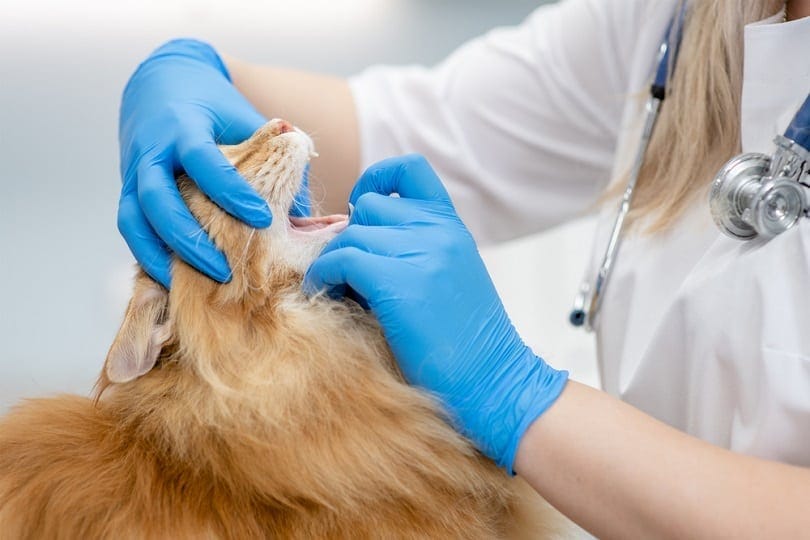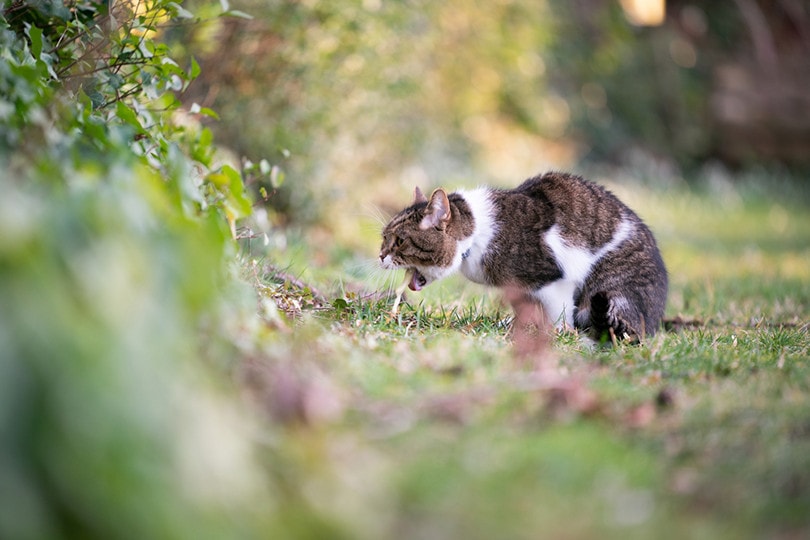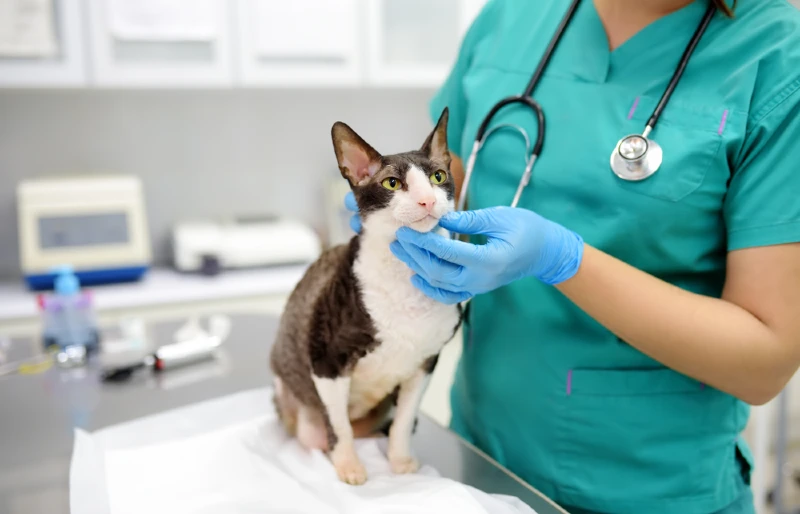
Click to Skip Ahead
Garlic is one of those ingredients that can enhance the flavor profile of any dish it is added to. It’s a staple ingredient in many households, but is it safe to leave lying around if you share your home with cats?
Unfortunately for cat owners, garlic is incredibly toxic and can cause severe toxicity if eaten by a curious kitty. Read on to learn more about garlic toxicity in cats, including what to do if your kitty has helped himself to your garlic-containing meal and the treatment options you’ll need to familiarize yourself with in that situation.
What Is Garlic Toxicity in Cats?
Garlic is part of the Allium family, which also includes onions, leeks, and shallots. Like other members of this family, garlic contains compounds known as disulfides and thiosulphates. It is these compounds that give this vegetable its toxicity. Garlic is particularly dangerous when compared to the other members of the Allium family. It is almost five times more toxic for cats than onions and may become life-threatening, so it must be treated like a medical emergency.
Garlic toxicity can occur whenever your cat has eaten any form of garlic. This includes cloves, jarred minced garlic, garlic powders and salts, and any pre-packaged foods containing garlic in the ingredient list (e.g., broths or dry soup mixes). Garlic-containing spices can be particularly hazardous as they are more concentrated than fresh garlic.

What Are the Signs of Garlic Toxicity in Cats?
You may not notice your cat exhibiting signs of garlic toxicity right after he has ingested garlic. Clinical signs may take several days to a week to develop.
What Are the Causes of Garlic Toxicity in Cats?
Garlic contains a toxic compound known as sodium n-propyl thiosulfate. This compound is released when the plant is mechanically disrupted through chopping, cooking, or chewing and when the GI microbes act on the material. Absorbing the compounds results in oxidative damage to red blood cells, causing them to become fragile.
When exposed to this toxin, the red blood cells can break down and become destroyed in a process known as hemolysis. Hemolysis will result in anemia, reducing the number of circulating red blood cells. Anemia can cause your cat’s organs to no longer receive the oxygen they need to function properly, eventually resulting in organ failure and death.
How Do I Care for a Cat With Garlic Toxicity

Even a taste of garlic or garlic-containing products can result in garlic poisoning. There is no safe amount. If you know your cat has gotten into garlic, take him to the vet as soon as possible. You can also try calling the Pet Poison Helpline (855-764-7661), though we recommend going to the veterinarian as time is of the essence. In severe cases of garlic poisoning, your cat’s red blood cells may become damaged and rupture, so you must treat the ingestion of garlic as the medical emergency it is.
The treatment will depend on how recently your cat ingested the ingredient. If it was within the last two hours, your vet could try to induce vomiting. However, this is often challenging and unsafe, so your vet may not go this route. Instead, they might recommend using activated charcoal to bind the toxins in your cat’s stomach.
In severe cases of garlic poisoning, your cat may need supportive care, such as hospitalization for intravenous fluids to prevent dehydration. If anemia occurs, a blood transfusion may be necessary. Sometimes oxygen therapy will be required to protect your cat’s organ function.
Never induce vomiting on your own, and do not wait to seek veterinary care. If you believe your cat has ingested garlic or a garlic-containing food, immediate treatment is necessary.
The good news is that most cats will recover from mild ingestion of garlic without any long-lasting consequences. That doesn’t mean you shouldn’t treat garlic ingestion as anything but a medical emergency, however. Because it is difficult to know exactly how much garlic your kitty has eaten, a thorough examination at the veterinarian is the only way to understand how serious the toxicity will be for your kitty.
Frequently Asked Questions (FAQs)
How will my veterinarian diagnose my cat with garlic toxicity?
Your veterinarian will diagnose garlic poisoning by investigating its clinical signs and performing a series of tests. They will perform a complete blood count and a blood chemistry profile to determine your cat’s red blood cell level and the severity of the toxicity.
Are some breeds more susceptible to garlic poisoning?
According to some sources, certain cat breeds may be more sensitive to the effects of garlic than others. Breeds like Burmese, Oriental Shorthair, Siamese, Singapura, and Turkish Angora may be at higher risk of developing serious complications after eating garlic.
How much garlic is toxic?
Due to cats’ small size and the highly potent nature of garlic, even small amounts of this veggie can result in poisoning. An average-sized cat (approximately 10 to 12 pounds) would need to eat less than a single clove of garlic to see signs of severe toxicity. So, around four to seven grams of one clove can result in serious poisoning.
Remember, however, that other forms of garlic can be more potent than cloves. Minced garlic or powdered varieties are highly concentrated, so much less is required to produce a toxic effect. As little as ½ teaspoon of minced garlic or 1/8 teaspoon of powdered types can be deadly.
Unfortunately, it can be impossible to quantify how much garlic is in a prepared or pre-packaged meal. So, if your kitty has helped himself to a taste of your garlic-containing meal, take him to the vet immediately.
Conclusion
Garlic can be extremely dangerous for cats, especially because even the most minute ingestion can result in poisoning. If you know your cat has eaten garlic, don’t wait for him to begin showing signs of toxicity. The sooner you get your cat treatment, the better his prognosis will be.
Featured Image Credit: Ermolaev Alexander, Shutterstock







